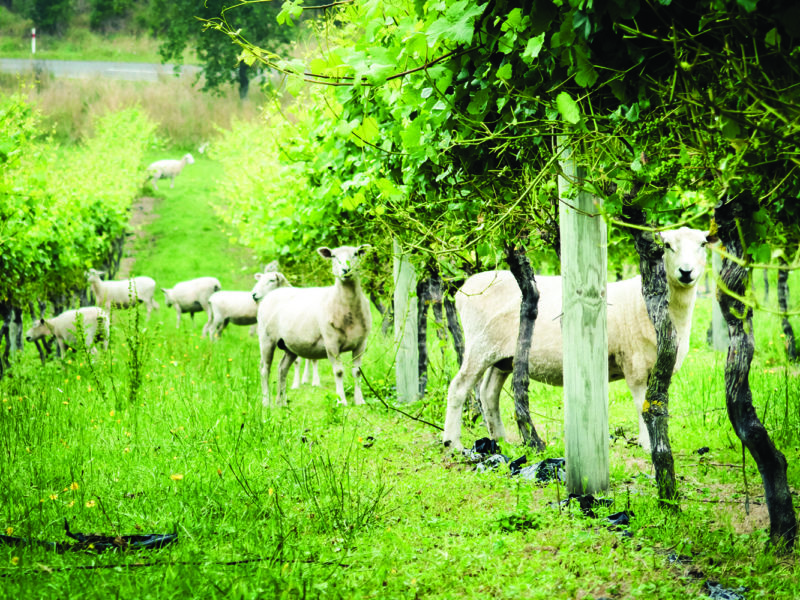
The natural wine movement goes beyond vineyard sustainability and the increasingly popular avoidance of chemical-based agricultural techniques. It encompasses non-manipulative and minimalistic approaches in the winemaking process as well.
Usually made by small-scale producers who hand-pick their fruit from organically or biodynamically grown vineyards, natural wines also typically use only indigenous yeasts and avoid all additives, including yeast nutrients, fining and sulfur, while also shunning processes such as filtration and oxidative winemaking.
In the vineyard, sustainability and longevity practices ensure that the soil is renewed and replenished. The use of chemicals, including herbicides, pesticides, fungicides and fertilizers, kills fungi and other soil micro-flora that break down organic matter and directly feed the vines. Soil sustainability is the major reason synthetic chemical-free organic and biodynamic methods became more widespread after the second World War.
In the laboratory, yeast strains have been isolated to reliably ferment to dryness and to give consistent, desired results in wine aroma and flavor. Native yeasts are commonly used in organic wine production, offering more terroir character. They also can produce more biogenic amines, a source of headaches, and can create off-aromas if the juice is low in nutrients.
Many natural wines are unstable and very sensitive to temperature extremes and fluctuations. Without filtration, fining and sulfur to prevent the action of bacteria and yeasts and sufficient sulfur to prevent oxidation, many examples are cloudy and can be downright funky.
California organic certifiers stipulate zero sulfur additions, though Europe and Biodynamic Demeter allow the addition of a small dose for wine stability, a significant point of production differences.
Oak aging can make wine stable, though barrels can’t be sterilized and the oxygen contact they allow requires the use of anti-oxidants. Fruit must be picked with adequate sugar to provide alcohol stability and high enough acidity to reduce microbial action, since sugar and acid can’t be added for balance and longevity. The natural wine’s shelf life is typically less than a year due to these challenges.
Don’t be surprised if your bottle is flawed. That is part of the risk of abstaining from modern winemaking interventions. Some simply require decanting to remove reductive character, then demand relatively quick consumption.
Some of the most popular styles of natural wines include “orange” wines: white wines that are fermented on their seeds and skins like red wines, acquiring a darker color and unique, nutty, tropical-fruit and savory characteristics. They also include Petillant Natural (known as “Pet Nats”) wines that are lightly sparkling, bottled to finish their first fermentation in the bottle, then released unfiltered with yeast sediment.
Joe Juniper of Vermilion Valley Vineyards currently offers a Pet-Nat and is planting hybrid varietals that allow for low-intervention winemaking. He plans on releasing a line of natural wines soon.
To maintain your natural wine’s quality, consume it within a year of the vintage due to low sulfites (the yeasts will form a small amount of naturally occurring sulfites during fermentation). Keep the wines cool, since microbes are less active at cool temperatures. Store them in the cellar, refrigerator or a wine cooler, and avoid temperatures above 80 degrees. Avoid light in storage. After opening a bottle, store any leftovers tightly sealed in the refrigerator.
Avoiding modern, accepted winemaking interventions requires stringent hygiene and quick sell-through. Even without an official or regulated product definition, natural wines are currently 1 percent of the world’s total production, with demand steadily growing through the interest to avoid additives.
We are certain to see increased natural-wine releases as more winemakers move in this direction, with the consumer deciding their ultimate future.


Great article! TownHall and Zach Bruell’s restaurants are featuring natural, organic, and biodynamic wines. Also, I have found that The Wine Spot in Cleveland Heights is the best place to buy and enjoy natural wines!